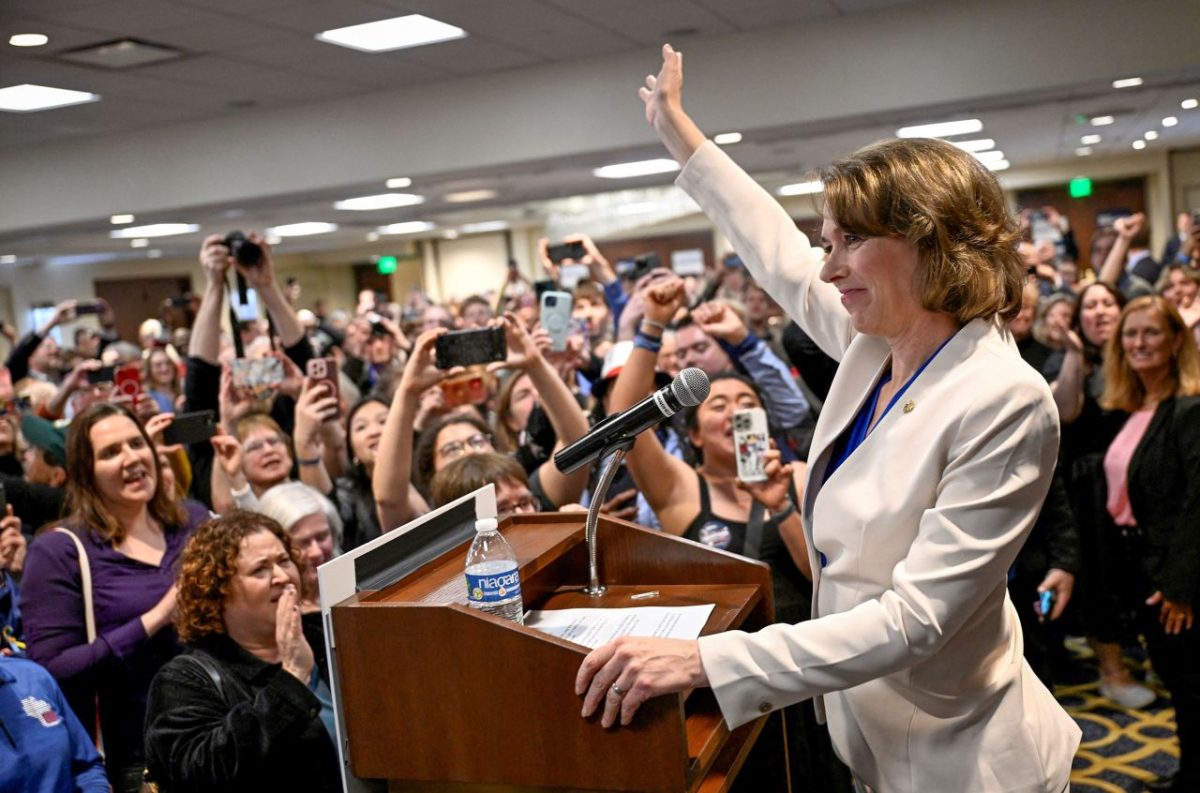People often focus on major elections like the presidential election or midterms, which take place in the fall. However, there is more than one election day in Wisconsin. The April election is part of the Wisconsin Constitution, which states that the people of Wisconsin are “to elect judicial, educational, and municipal officers, nonpartisan county officers, and sewerage commissioners,” according to Laura Felone Day, an analyst with the Wisconsin Legislative Reference Bureau.
With a Wisconsin Supreme Court seat up for grabs, millions of dollars were poured into the race in hopes that either Susan Crawford or Brad Schimel would win. Not only did the millions spent on this race draw the attention of the press, but it also had significant implications for issues like abortion rights and provided one of the best indications of how a swing state like Wisconsin feels about the current conservative government led by Trump. At 9:16 p.m., Crawford won the seat with over 55% of the votes, 10 points ahead of Schimel. This outcome surprised many, given how close the presidential race in Wisconsin was.
At a victory rally in Madison Tuesday night, Crawford thanked her supporters, saying their votes helped send a message to the country.
“Today, Wisconsinites fended off an unprecedented attack on our democracy, our fair elections, and our Supreme Court. And Wisconsinites stood up and said loudly that justice does not have a price – our courts are not for sale,” Crawford said.
Crawford did not mention Elon Musk by name, but she referenced defeating his big spending in the contest. “As a little girl in Chippewa Falls, I never thought I’d be taking on the richest man in the world for justice in Wisconsin, and we won!” she said to loud cheers.
Overall, the candidates and outside groups spent more than $90 million — shattering spending records set just two years ago, when another liberal judge captured an open seat and flipped control of the court.
With the millions poured in, the race overshadowed other elections, such as the race for Wisconsin State Superintendent. This race was closer, with incumbent Jill Underly, backed by Democrats, winning by 6 points, defeating challenger Brittany Kinser, who was supported by Republicans and pushed for a voucher program that would redirect funding from public schools to private schools.
However, it was not a win across the board for Democrats. They lost in a proposed constitutional amendment regarding voter identification. The “yes” vote on this measure will make it a requirement in the state constitution that voters must present a photo ID, which will disproportionately affect low-income individuals and people with disabilities who cannot obtain a driver’s license. This measure does little to prevent voter fraud.
On a more local level, the Platteville Pool referendum passed, allowing the city to borrow around $6.9 million to fund pool reconstruction. The facility had significant problems in recent years, including the concrete structure collapsing several inches into the ground, causing cracks in the bottom and walls. This failure rendered the pool unusable for the 2024 season. With the funds, the city can begin the process of hiring engineers and designing what is needed, though it remains unclear when the pool will reopen.
Also at the local level, school board members Betsy Ralph-Tollefson, Ben Grossman and Todd Kasper were reelected, defeating incumbents who were criticized by the school and staff.




